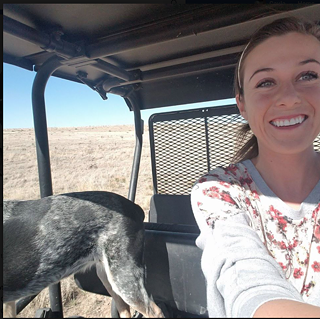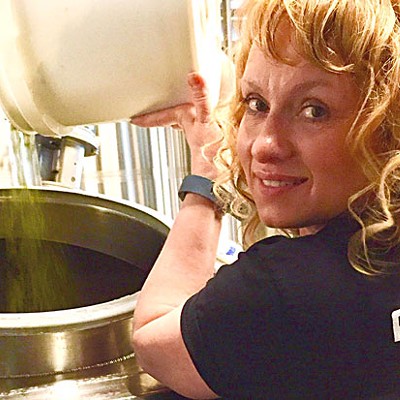Skiing, mountain biking, Patagonia sweaters and an excess of pricey craft beer; there's no doubt that Bend is steeped in a culture often associated with "whiteness." According to data accumulated by the U.S. Census Bureau's American Community Survey, the racial composition of Bend in 2019 is 86.1% white.
Rich Benjamin, an anthropologist, American culture critic and Scholar-in-Residence at Columbia University, explores the recent increase in pockets of extreme whiteness throughout America–pockets he's labeled "Whitopias." He observed that as the U.S. continued to grow in racial diversity, certain areas were rapidly becoming less and less multicultural.
This shift sparked Benjamin's interest, and he decided to explore the reasoning behind it. He spent over two years traveling 27,000 miles, delving into these oddly uniform sanctions and attempting to uncover why segregation—however unintentional—is still a favorite American pastime.
In an interview with TIME, Benjamin explained the difference between diversity and integration, and touched on the danger involved in exacerbating a lack of cultural assimilation.
"People don't realize that diversity isn't the same as integration. Blacks and whites in New York, where I live, are as segregated today as in 1910," he said in the article. "You can call me old-fashioned, but I'm an integrationist. A democracy can't function at its optimum unless all members are integrated as full members. A community full of like-minded people tends to enforce their own view of the world and close off opposing viewpoints. You can go to parties in New York City where the liberal smugness is intolerable because they're only hearing liberal viewpoints. On the Whitopian conservative side, it's spinning out of control. Look at the tea-bagger movement, where people are concerned their taxes are going to be wasted on minorities and illegal immigrants."
He found that while the general attitude toward African Americans is becoming less hateful and less intolerant, it is slowly becoming more avoidant. If we successfully ignore it, it doesn't exist, right?
“It can be difficult to tell who’s genuine—are people being nice because they want to, or because they feel like they have to?”—Johnny Alfredo
tweet this
Johnny Alfredo, a 30-year-old North Carolina native, recently moved to Bend to pursue a career in marketing. He shared his experiences in Bend as an African-American male with the Source Weekly.
"I found that at first, most of my struggles were internal," he says."Externally... I mean, everyone is so freaking NICE. I spent a lot of time trying to figure out why, rather than just accepting it." However, Alfredo has noticed that some Bend locals treat him a bit differently.
"It can be difficult to tell who's genuine—are people being nice because they want to, or because they feel like they have to? I do think that people act differently towards me; I didn't notice it until I started having one-on-one conversations. Some people are obviously uncomfortable talking to me."
Alfredo mentioned something familiar, but unexpected. "I was surprised to see Confederate flags... on bumper stickers, on belt buckles. That's a Southern thing. I was used to seeing it in the South, but I didn't think I'd see it here. I think that maybe people feel comfortable toting the flag in Bend because of the demographic."
Bend is a desirable place to live. But is the community actively (however subconsciously) working to avoid diversity?
While it may not seem like a glaring issue, a severe lack of multiracial cohesion does pose a problem. According to Benjamin, by continuing to chase the ideal of utopian homogeneity –a community disallows the essential personal and communal growth that comes with diversity.
Bendites seem to agree with Benjamin's viewpoint, or at least, interest has been piqued. The lecture at OSU-Cascades has completely sold out, and while the lecture being held at 10 Barrel East is first come, first served, it is expected to fill up soon after the doors open at 6:30pm.
"People in Whitopia would say, 'Hey, Rich, birds of a feather flock together. What's the big deal?' Our government and businesses across the country make decisions every day that perpetuate segregation," Benjamin told TIME. "When you say homes need to be built on a 1-acre lot, when you say apartment renters can't live in your community—these concrete policies are what contribute to segregation. It's not in our biology, and it's not natural. We're a great country—we've overcome some thorny problems in our past, and we're better than that."
Searching for Whitopia: An Improbable Journey to the Heart of White America
Mon., Oct. 21, Noon-1pm
OSU-Cascades, Tykeson Hall, Bend.
Mon., Oct. 21, 6:30-8pm
10 Barrel Eastside, Bend.
For more information contact [email protected].



























